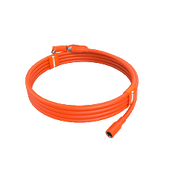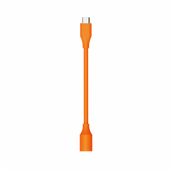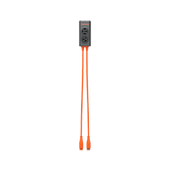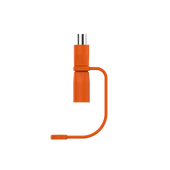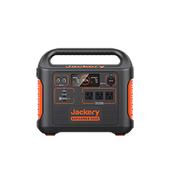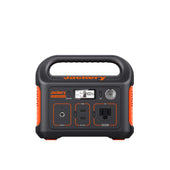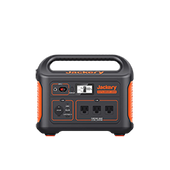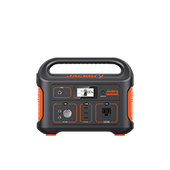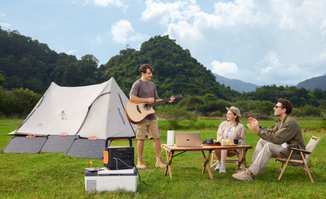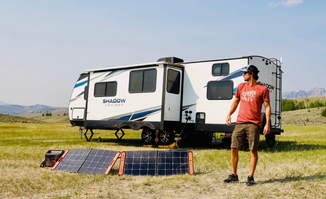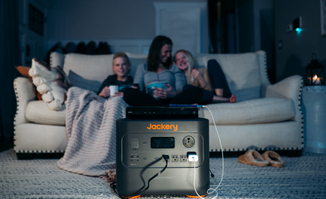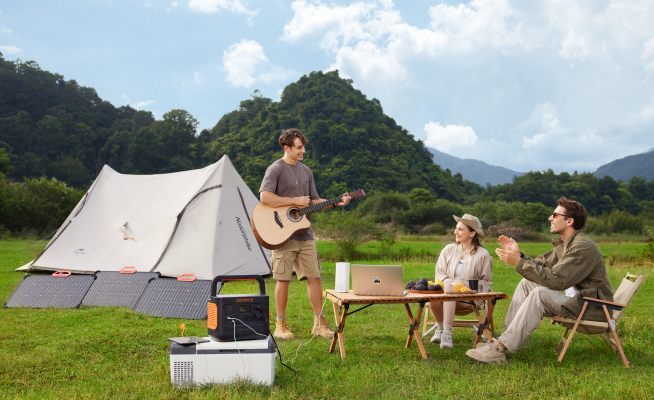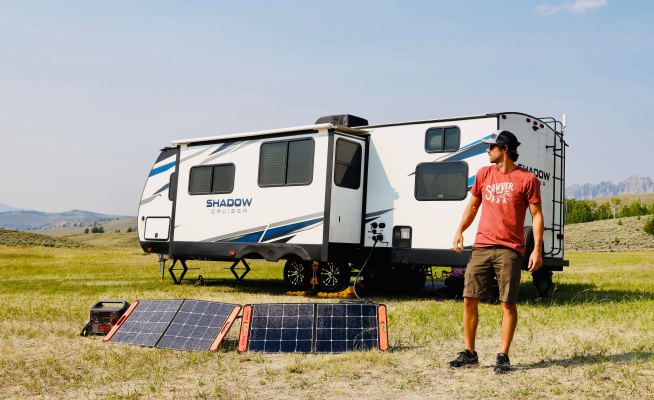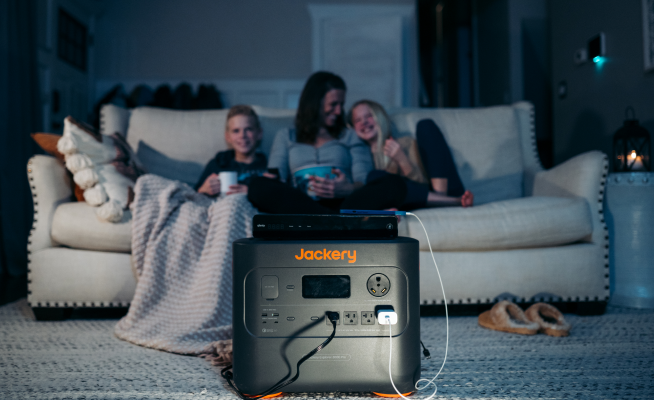Solar Refrigerator vs. Solar Generator for Refrigerator
Have you ever thought about which is one of the largest electrical appliances in your home? And which appliance do you need to power first during a power outage? It's your home refrigerator where you store all your delicious food.
On average, a home refrigerator consumes 300-800 watts of electricity, depending on the size and type of model. The best way to reduce electricity is by switching to solar energy and using sunlight to power appliances.
You've two options when switching to solar: solar refrigerator or a solar generator for the refrigerator. The former option may or may not be designed to keep all your beverages and food safe, but the latter definitely can.
Jackery solar generators come in different sizes and are suitable for all small and large refrigerators. Thanks to their portable nature, you can still enjoy healthy food even when away from home.

Solar Refrigerator Vs. Solar Generator For Refrigerator
Solar energy is widely available and is one of the best ways to reduce electricity usage. The two best options for using solar energy are either choosing a solar refrigerator or a solar generator for the fridge. In this section, we'll discuss the pros and cons of solar refrigerators and power backup solutions and which one you should choose.
Solar-Powered Refrigerator
A solar-powered refrigerator runs directly on the sun's energy and includes photovoltaic panels. The PV panels work by converting sunlight into DC electrical power. The energy available is used to cool the refrigerator and keep the inner food safe and healthy.
People wanting to enjoy off-grid living, camping, or outdoor activities in areas with high sunlight can choose solar-powered refrigerators. However, it is suitable only for areas with long hours of direct sunlight.
In addition, power production is not uniform and depends on how much sunlight it receives during the day. Therefore, you need another power backup solution ready to charge the freezer during the night.
Pros
- Solar-powered refrigerators use reliable and purest forms of energy; hence they can help you cut electricity bills.
- It is energy efficient, and you'll need a 250-watt panel and a couple of deep-cycle batteries to power it.
- As there is no need for fuel or gas, you don't have to spend money on its maintenance.
Cons
- Power production is not uniform, as solar radiation is unavailable throughout the day.
- It is not suitable for areas where the average solar radiation flux is low.
- You'll have to install a large collector to produce high solar energy with solar refrigerators.
Solar Generator For Refrigerator
Solar generator for refrigerators is a renewable and eco-friendly source of energy. That means you can power your appliances using solar energy even if no electricity is available. It converts sun rays into electricity and stores it in lithium-ion batteries for later use.
As solar generators are portable, they can be used for various appliances at home or outdoors. You can charge different electrical appliances and charge the solar generator simultaneously. This helps you to enjoy camping, outdoor activities, or off-grid living even when you are not connected to the electrical grid.
Pros
- It is a solar power system. It converts solar energy to power and stores it in a lithium-ion battery of a portable power station. Hence, you can power up your refrigerator even at night.
- A 1000-watt solar refrigerator generator can power almost 90% of electrical appliances, one to rule them all.
- Pass-through charging converts solar to electricity and helps you power all appliances and charge the battery simultaneously.
- As it uses solar energy, no fumes or harmful gases are emitted. Hence, it is safe to use indoors.
- There are no maintenance costs associated with solar power generators. All you need to do is clean the solar panel with one clean cloth to improve efficiency.
Cons
- Some large-capacity solar generators can be an expensive option compared to solar refrigerators.

How Many Watts Does A Refrigerator Use?
As there are different variants of refrigerators available on the market, the wattage required to run a fridge varies considerably. For example, a small refrigerator, mini solar cooler, or compact freezer uses fewer watts, whereas a large refrigerator needs more power.
Read on to find out how much solar energy you need to run a refrigerator, the starting and running watts, and the different refrigerator types available on the market.
What Is Watt?
Watt (or W) is a unit of power used to quantify the energy transfer rate for a moment at a time. On the other hand, watt-hour (Wh) measures energy for a specific period. For instance, energy spent in one hour is termed a watt-hour.
For instance, if a solar generator has a capacity of 200 watts, the watt-hour will be around 240 Wh. Meanwhile, a larger solar power generator of 1000 watts Pro will have a watt-hour of 1002 Wh.
How Many Starting & Running Watts Refrigerator Use?
Large appliances like freezers and refrigerators have electric motors present in them. That's why they need more starting watts than running watts. Starting watt is the amount of energy required to start an appliance; meanwhile, the running watt is the power any device needs to run for hours.
The actual power requirement of a fridge will significantly depend on energy class, size, temperature difference, etc. Older larger units generally require 700-1000 running watts, while the starting watts are high (up to 2000-3000 watts). Meanwhile, newer units consume less energy and power.
Generally, starting watts are always four times greater than running watts. Here is the simple formula to calculate starting watts.
Starting watts = 4 * Running watts
Let us assume that a refrigerator consumes 300 running watts. Here is how you can calculate the starting watts:
Starting watts = 4 * 300W = 1200W.
Here, 1200 watts are the minimum power you need to charge your solar refrigerator for hours. That said, you'll need to purchase a specific solar power generator that can provide more than 1200W power.
Pro Tip: Before buying the best solar-powered generator for a refrigerator, it's vital to check the battery capacity, brand, and manufacturer. There are different solar power generators available in the market. Also, check the power station's features and ensure they have a robust protection system to keep the large appliance like refrigerator safe.

How Much Solar Power Do I Need To Run A Refrigerator?
One of the common questions homeowners ask while buying solar generators is: how much solar power do I need to run a refrigerator. The short answer lies in the type of refrigerator you have.
For instance, if you have a large refrigerator that consumes around 800W, you'll have to purchase a solar generator with a high capacity. A solar power generator that can provide 800Wh (watt-hour) or more would be suitable for powering large refrigerators.
Meanwhile, if you want to charge a mini cooler for camping or other outdoor activities, consider purchasing a solar generator with a capacity of 1000 watts. With a 1000 W solar generator, you can power different appliances with clean and green energy.
Here are a few different types of refrigerators with their starting and running watts.
- Large home refrigerators require 200-400 running watts and 800-1600 starting watts. This refrigerator is usually present in homes and businesses.
- Average home refrigerators require 100-250 running watts and 500-1000 starting watts.
- Small home refrigerators require 75-150 running watts, whereas starting watts are 400-600. An average solar power generator can keep your small power generator charged for long hours.
- Mini coolers or fridges require 50-100 running watts and 200-400 starting watts. The portable refrigerator and solar generator combo will help keep your food cool and healthy.
- Compact home or RV refrigerators require only 40-50 running watts, with starting watts around 80-120. These refrigerators are portable and perfect for camping and outdoor activities.
Another question that solar generator buyers ask is: how many solar panels to run a refrigerator or freezer? The answer to this depends on your requirements and the wattage your electrical appliance consumes per hour.
On average, the refrigerator takes around one to four solar panels to run. However, it will directly depend on the panel's solar generation capacity and the refrigerator's size. You can choose the number of solar panels depending on the power generator size and the estimated daily energy consumption.
Here is the breakdown of how many watts different refrigerator types consume.
|
Refrigerator Types |
Estimated Watt |
Length of Time Powered each day |
Estimated daily energy consumption (Watt-hours) |
|
Mini Cooler
|
50-100 Watt |
8 H |
400-800 Wh |
|
Single Door Large Refrigerator |
100-200 Watt |
5 H |
500-1000 Wh |
|
Double Door Large Refrigerator |
350-780 Watt |
3 H |
1050-2340 Wh |
|
Single Door Small Refrigerator |
75-150 Watt |
6 H |
450-900 Wh |
|
Double Door Small Refrigerator |
200-350 Watt |
4 H |
800-1400 Wh |
|
Triple Door Refrigerator |
300-600 Watt |
8 H |
2400-4800 Wh |
|
Compact Refrigerator |
40-50 Watt |
6 H |
240-300 Wh |
Solar Generator For Refrigerator
Jackery power solar generators are a great way to use clean solar energy to power your appliances. For example, you can power a large refrigerator during a power outage, off-grid living, or carry the generator during camping to charge a mini cooler.
Several types of solar power generators are available at Jackery, depending on your power requirements and the number of appliances. For example, you can purchase a Jackery solar generator 2000 pro to charge a large refrigerator, whereas the Jackery solar generator 1500 or 1000 can power small appliances, freezers, and more.
Here are what the users of Jackery solar generator say about the product:
"This is awesome! Bought it as a backup generator with 2 solar panels. When plugged into the power outlet, it charges really fast and even runs while being charged. This is a powerful "beast." It can run my big fridge for days. I have several Jackerys from 240 to 1500, and it gives me peace of mind for outages in a hurricane area where we are living without loud engines running or having to install anything on my roof. A little heavy, but where we store it that is not a problem. I recommend getting an extension cord with it. That allows some distance between the solar panels and the generator. Jackery is great. The customer service is incredible. They always have solutions. As I said. I have several of them. Never regretted the purchase. --Shannon"
"In south Florida, we deal with a lot of power outages. And my work requires me to be out working when these occur. Though I have good generators, my wife is unable to operate them. This unit solves that issue. She runs a few cords and can restore enough power to abide till I can get the generators up. That's worth every penny to me.-- Dax Skywalker"

To help you understand better the best solar generators for refrigerators, here is a detailed breakdown of the tech specs and features of different Jackery products.
|
Product |
Output Ports |
Refrigerator Running Watts
|
Supported Working Hours (When the portable power station is fully charged) |
|
AC Output: 120V, 60Hz, 220W (4400W Peak) USB-A Output: Quick Charge 3.0, 18W Max USB-C Output: 100W Max, (5V, 9V, 12V, 15V, 20V up to 5A) Car Output: 12V, 10A |
Mini Cooler - 50-100 Watt Single Door Large Refrigerator - 100-200 Watt Double Door Large Refrigerator - 350-780 Watt Single Door Small Refrigerator - 75-150 Watt Double Door Small Refrigerator - 200-350 Watt Triple Door Refrigerator - 300-600 Watt Compact Refrigerator - 40-50 Watt |
Mini or Compact Refrigerator - 15 H or more. Single Door Large Refrigerator - 6 H or more Double Door Large Refrigerator - 4 H or more Single Door Small Refrigerator - 15 H or more Double Door Small Refrigerator - 3 H or more Triple Door Refrigerator - 5 H or more
|
|
|
AC Output: 110V, 60Hz, 1800W (3600W Peak) USB-A Output: 5V, 2.4A Quick Charge 3.0, 18W Max, 5-6.5V, 3A / 6.5-9V, 3A / 9-12V, 1.5A USB-C Output: PD60W, (5V, 9V, 12V, 15V, 20V up to 3A) Car Output: 12V, 10A |
Mini Cooler - 50-100 Watt Single Door Large Refrigerator - 100-200 Watt Double Door Large Refrigerator - 350-780 Watt Single Door Small Refrigerator - 75-150 Watt Double Door Small Refrigerator - 200-350 Watt Triple Door Refrigerator - 300-600 Watt Compact Refrigerator - 40-50 Watt |
Mini or Compact Refrigerator - 13 H or more. Single Door Large Refrigerator - 4 H or more Double Door Large Refrigerator - 3 H or more Single Door Small Refrigerator - 10 H or more Double Door Small Refrigerator - 7 H or more Triple Door Refrigerator - 4 H or more
|
|
|
AC Output: 120V, 60Hz, 1000W (2000W Peak) USB-A Output: Quick Charge 3.0, 18W Max USB-C Output: 12V,10A Car Port: 120V, 60Hz, 15A Max |
Mini Cooler - 50-100 Watt Single Door Large Refrigerator - 100-200 Watt Single Door Small Refrigerator - 75-150 Watt Compact Refrigerator - 40-50 Watt |
Mini Fridge - 7 H or more Single Door Small Refrigerator - 2 H or more Single Door Large Refrigerator - 3 H or more Compact Refrigerator - 6 H or more |
One of the most vital features of Jackery solar power generators is pass-through charging. That being said, you can recharge and power appliances at the same time. With this, you'll never run out of power in any condition if you have a Jackery power solar generator with you.
What Size Of Solar Generator To Power Refrigerator?
The size of the solar generator to power the refrigerator will depend on multiple factors, including the refrigerator's age, features, size, temperature, amount of time it remains open, and more.
Here is the simple mathematical formula to calculate the size of a solar generator for your refrigerator.
Let us assume that you are using a solar generator 1000 pro that has a capacity of 1002 Wh.
Working time = 1002Wh * 0.85 / operating wattage of your device.
For instance, suppose your refrigerator consumes 200 watts of power. (You can find the power consumption of the freezer in the user manual).
Then you can calculate the working time by substituting the value in the formula.
Working time = 1002Wh * 0.85 / 200W = 4 hours.
However, this does not mean you can power your appliance for only one hour. Due to the pass-through feature, you can even keep it plugged in for charging and power appliances simultaneously.
Note: This is a rough calculation to determine the power consumption and working hours. If you're unsure which Jackery model will suit your needs, feel free to consult Jackery experts.

FAQs About Solar Generator For Refrigerator
1. Can a 100-watt solar panel run a refrigerator?
A single 100-watt solar panel can efficiently run several small devices, including phones, laptops, fans, lamps, etc. However, you'll need to purchase a solar power station to pair with the panels and charge appliances like refrigerators, CPAP and so on.
2. How many solar panels to run a refrigerator?
The expected number of solar panels to run a refrigerator will depend on several factors, including:
- The power rating of the solar panels
- The capacity of the solar power generator
- Amount of peak sunlight hours you receive
- Energy consumption or wattage requirements of your refrigerator
A 200-watt solar panel is an excellent choice as you can collect and store enough energy to keep your appliance running for hours.
Remember, solar panels won't work independently, and you must connect them to portable solar power generators. The right combination will help you power all your appliances, including the refrigerator, and prevent the items from degradation.
3. How long will a solar generator power a refrigerator?
There are different sizes and models of solar generators available on the market. Two best Jackery solar generators that can power your refrigerator for hours include Jackery solar power 1500 and 2000 Pro.
- Jackery Solar Generator 1500 and 4 SolarSaga 100-watt panels can keep your large refrigerator running for nearly 3 hours. Meanwhile, you can keep your mini cooler (60W) charged for 21 hours.
- Jackery Solar Generator 2000 Pro can power a 520W refrigerator for 3.3 hours, while it charges a mini cooler (90W) for 15 hours.
If you intend to enjoy camping or other outdoor activities, purchase Jackery solar generator 1500 to power all your devices. Meanwhile, people who want a backup solution for power outages or off-grid living can choose Jackery solar generator 2000 Pro.
4. Can you run a refrigerator on a solar generator?
The short answer is yes. You can efficiently run a small or large-sized refrigerator on a solar generator. However, you should consider a few things while buying a solar generator model.
- Calculate the wattage that your refrigerator consumes.
- Consider the estimated number of hours you might need a solar generator to power your appliance.
Pro Tip: Always purchase a power generator that renders more wattage than your refrigerator needs. You can find the wattage requirements of your fridge written on the user manual or on the sidewalls of the appliance.
Conclusion
If you're planning to use clean and renewable energy for your home, a solar generator for the refrigerator is all you need. Besides the solar fridge, you can power other appliances, including a coffee maker, mini cooler, electric grills, and electric blanket, to name a few.
Purchasing a solar power generator is all you need to go solar and cut connections from your electricity grid.
Instead of purchasing a solar-powered refrigerator, you can buy a solar generator to charge your traditional freezer. Jackery Solar Generator 1000 Pro, Jackery Solar Generator 1500, and Jackery Solar Generator 2000 Pro are the three most popular solar generators to power all your home appliances at home or during camping.
They are portable solutions that help you charge your appliances while away from home. If you want more exciting news about Jackery products, subscribe to our newsletter and get every information about deals and offers in your inbox.
Disclaimer:
The runtime mentioned for appliances powered by Jackery is for reference only. Actual runtime may vary under different conditions. Please refer to real-world performance for accurate results.







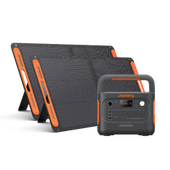



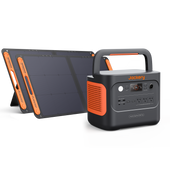

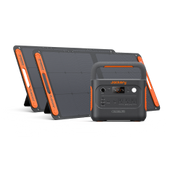
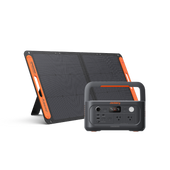
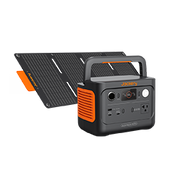

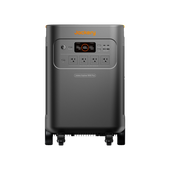

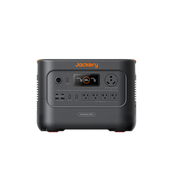
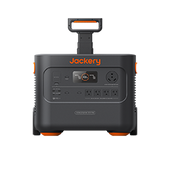
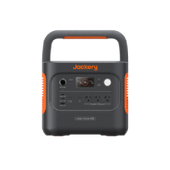
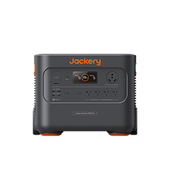

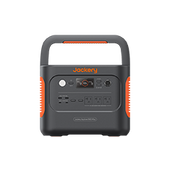
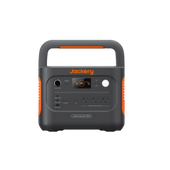
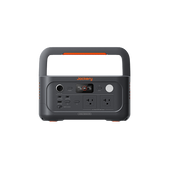

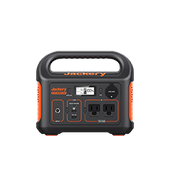
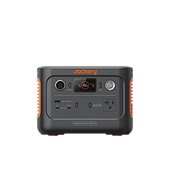

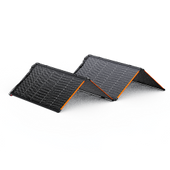
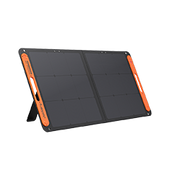

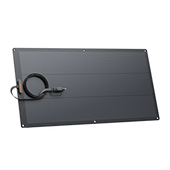
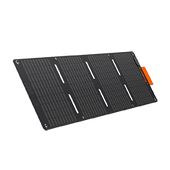
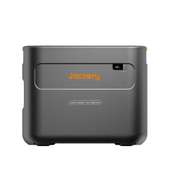
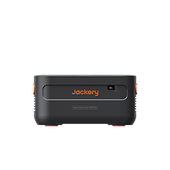
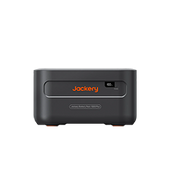
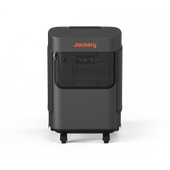
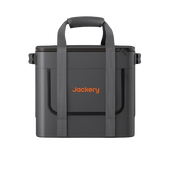
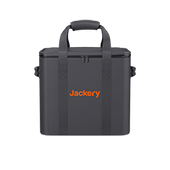
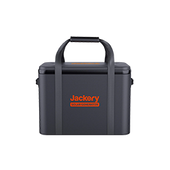
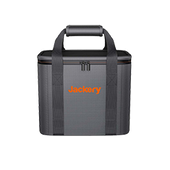
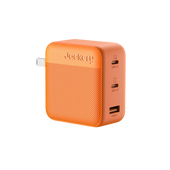
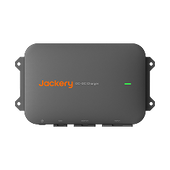
![[Add-on] Jackery Manual Transfer Switch for Explorer 5000 Plus](http://ca.jackery.com/cdn/shop/files/add-on-jackery-manual-transfer-switch-for-5000-plus-240V.webp?v=1757043692&width=170)
